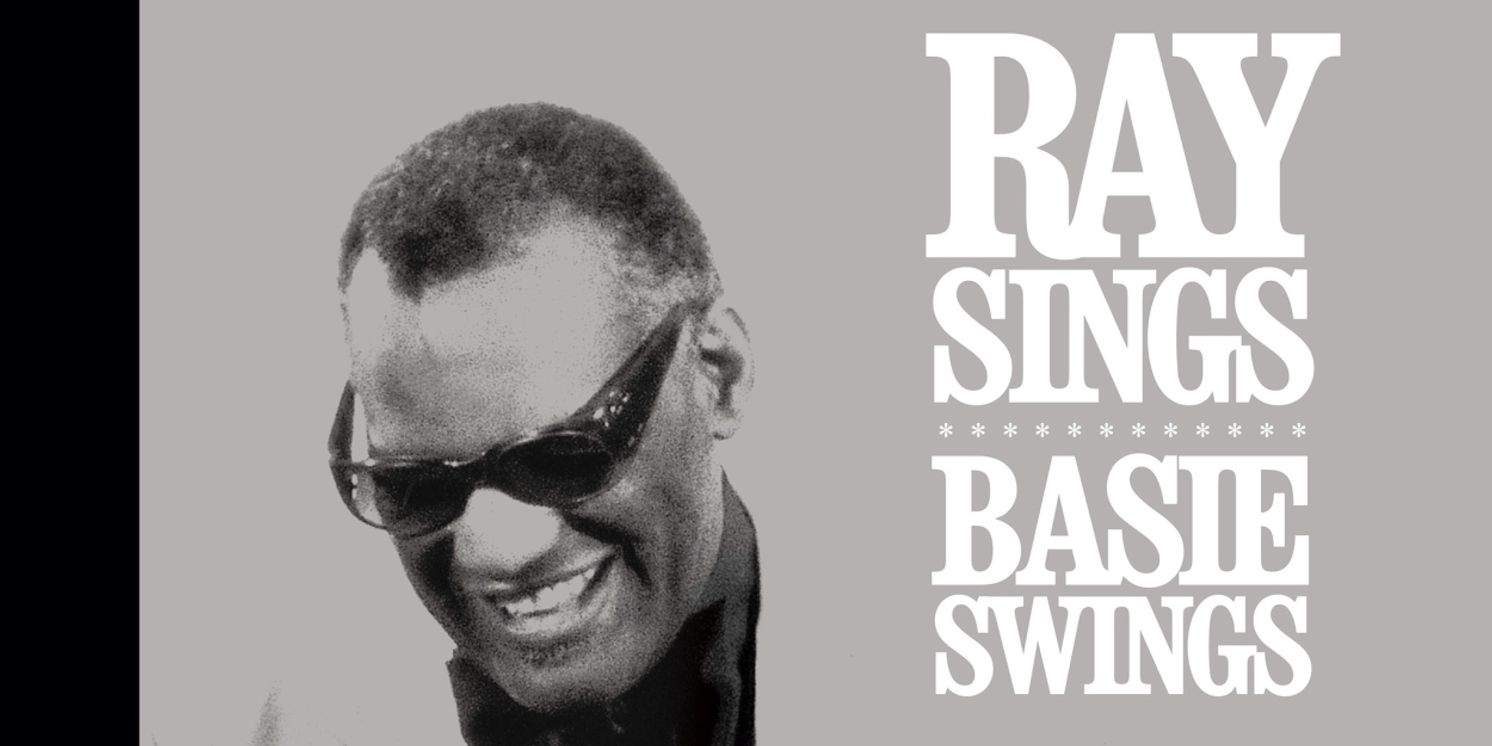Tangerine Records Announces Remastered Re-Release of 'Ray Sings, Basie Swings'
The album will be re-released on September 23.

Tangerine Records has announced the re-release of the transformative mashup album Ray Sings, Basie Swings, for September 23rd, 2022.
Originally released in 2006, the uniquely inspired album mixes previously unreleased Ray Charles vocal performances from the seventies with newly recorded instrumental tracks by the contemporary Count Basie Orchestra, and will be available on all streaming services for the first time in over a decade, as well as on CD and in a double-vinyl package. Ray Sings, Basie Swings is currently available for pre-order here.
Tangerine Records has also released a new video for the signature track "Let The Good Times Roll."
In 2005, then Concord Records head John Burk (producer of Charles' 2004 Grammy-winning Genius Loves Company) found a reel of tape simply labeled "Ray/Basie." "I was immediately excited as there were no prior recordings of Ray Charles with the Basie band," says Burk. "...and I practically ran to put the tapes on the machine."
What John heard, though, wasn't Basie and Ray playing together, but rather separate sets during concerts performed in Germany and England.
Still, an unknown live recording of Charles from the seventies was cause for excitement. But the recording of Ray's band was obscured by a bad mix, leaving only Charles' exceptional vocal performance audible. At first, it was thought that this potentially momentous discovery would be unusable. Until Burk had the brilliant idea to bring the contemporary Count Basie Orchestra into the studio to lay newly recorded instrumental tracks behind Charles' incredible vocal performances.
Ray Charles loved Count Basie, and in fact used Basie's arrangements as a blueprint for his own arrangements. According to Sid Feller, who probably wrote more Ray Charles big band orchestrations than anyone, Charles would "often point to Basie charts as templates. He wanted that thick harmony in the reeds. He wanted those clean horn punches. He wanted it simple like Basie, and he wanted it strong. Mostly, though, he wanted that Basie swing."
Charles was in top form on this mix of remakes of his early ABC-Paramount-era hits and then-recent material. The consecutive reworkings of "Busted," "Cryin' Time," and "I Can't Stop Loving You," three of his defining Top Ten hits of the early '60s, are given brassy, bluesy treatments here, and standards ranging from Oscar Hammerstein II's "Oh, What a Beautiful Morning" to The Beatles' "The Long and Winding Road" are transformed in Charles' hands.
The set-closing "Georgia on My Mind," as close to a signature song as Charles had, is given a tender, minimalist reading, but the track preceding it, "Look What They've Done to My Song, Ma," picked up from the folk-pop singer Melanie, is quite possibly the album's highlight.
Burk and his co-producers decided on a single goal: to make the date sound like a genuine heart-to-heart collaboration. To create the impression that it was actually performed together, the editing process took four months. The end result is a compelling and real collaboration, even if it didn't happen in real time.
Ray Sings, Basie Swings, two great artists together on one of the finest albums in Ray's illustrious career.
One of the greatest artists of all time, Charles successfully mastered and forever changed the blues, jazz, gospel, rock, pop, and country music landscapes. Charles' staggering achievements over a 58-year career include 17 GRAMMY Awards, induction into both the Rock and Roll Hall of Fame and Country Music Hall of Fame, a Lifetime Achievement and the President's Merit Award, the Presidential Medal for the Arts, France's Legion of Honor, the Kennedy Center Honors, the NAACP Image Awards' "Hall of Fame Award," and numerous other music Halls of Fame, including those for Jazz and Rhythm & Blues, all testament to his enormous influence.
Videos

